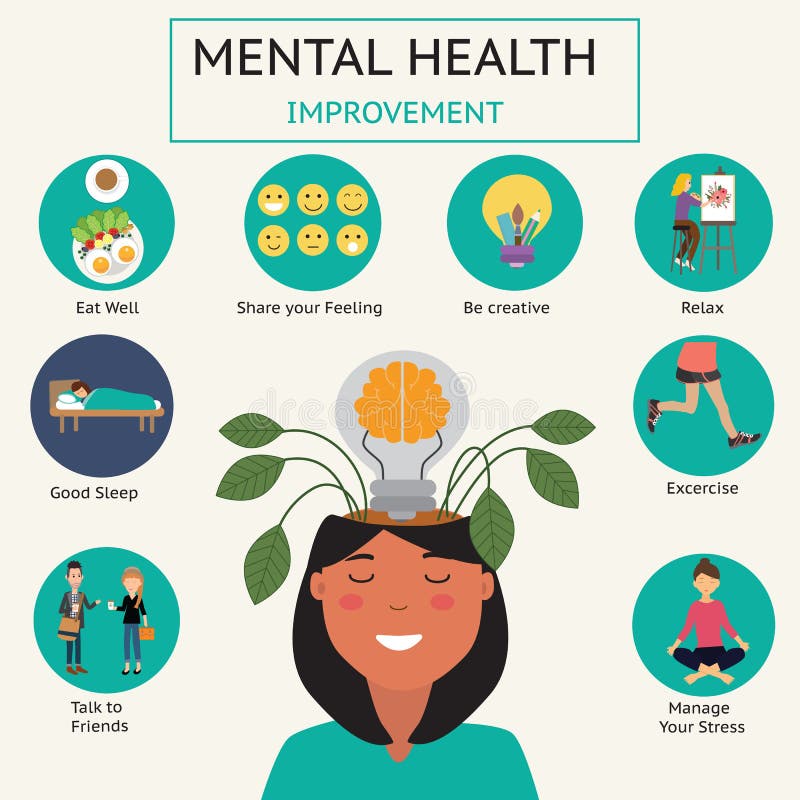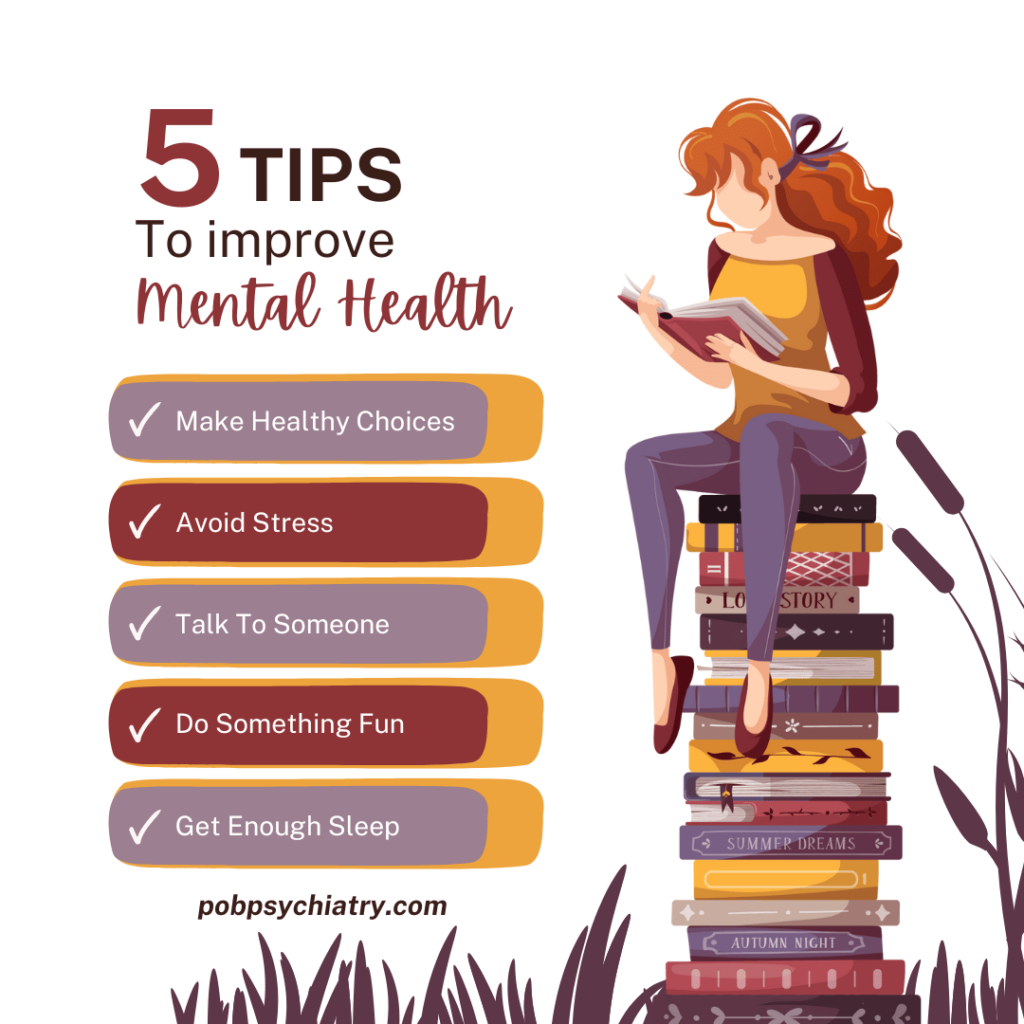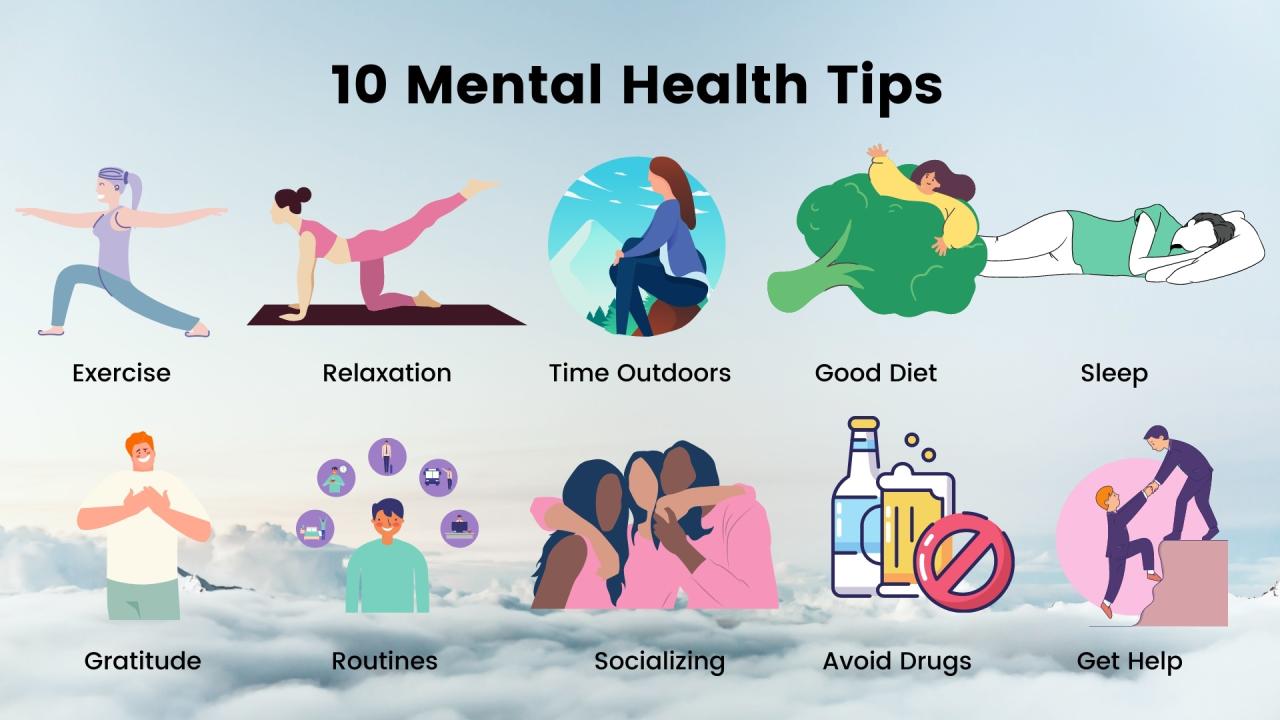How to Improve Mental Health Naturally: A Comprehensive Guide

Exploring the realm of natural mental health improvement unveils a plethora of strategies to enhance well-being. From lifestyle choices to mind-body techniques, this guide delves into the intricacies of nurturing mental wellness in a holistic manner.
As we navigate through the factors influencing mental health and the significance of social connections, a tapestry of insights emerges, offering a roadmap for cultivating a healthier mind.
Factors impacting mental health

Various factors can significantly impact mental health, leading to changes in mood, behavior, and overall well-being. These factors can range from environmental influences to personal choices, all playing a role in shaping mental wellness.
Common Factors Affecting Mental Health
- Stress: High levels of stress can negatively impact mental health, leading to anxiety, depression, and other mental health disorders.
- Genetics: Family history and genetic predispositions can play a significant role in mental health conditions.
- Trauma: Past traumatic experiences can have long-lasting effects on mental well-being if not addressed and processed effectively.
- Social Environment: Relationships, social support, and community interactions can influence mental health outcomes.
Lifestyle Choices and Mental Well-Being
Our daily lifestyle choices can have a profound impact on our mental health. Engaging in healthy habits and activities can promote positive mental well-being and help manage stress effectively.
Role of Diet in Mental Health
Diet plays a crucial role in mental health, as certain nutrients can affect brain function and mood regulation. Eating a balanced diet rich in essential nutrients can support overall mental well-being.
Natural methods to improve mental health
Regularly incorporating natural approaches into your routine can significantly enhance your mental well-being. These methods are often simple, yet effective, in promoting a positive mindset and reducing stress levels.
Benefits of Physical Exercise for Mental Health
Physical exercise plays a crucial role in improving mental health by releasing endorphins, which are known as the "feel-good" hormones. These endorphins help reduce feelings of anxiety and depression, while also boosting your overall mood. Engaging in regular physical activity can improve your self-esteem, cognitive function, and sleep patterns, leading to a more balanced mental state.
Impact of Sleep on Mental Well-being
Quality sleep is essential for maintaining good mental health. During sleep, your brain processes emotions, consolidates memories, and regulates mood. Lack of sleep can lead to irritability, difficulty concentrating, and increased stress levels. Establishing a bedtime routine, creating a comfortable sleep environment, and practicing relaxation techniques can help improve your sleep quality and overall mental well-being.
Mind-body techniques for mental wellness
Mind-body techniques focus on the connection between the mind and body to improve mental health. These practices have been shown to reduce stress, anxiety, and depression while enhancing overall well-being.
Mindfulness and Meditation
Mindfulness involves being fully present in the moment and accepting your thoughts and feelings without judgment. Meditation, on the other hand, helps calm the mind and promote relaxation
Yoga for Mental Well-being
Yoga combines physical postures, breathing techniques, and meditation to promote relaxation and reduce stress. It has been shown to improve mood, increase mindfulness, and boost overall mental well-being. Regular practice of yoga can help manage anxiety, depression, and other mental health conditions.
Deep Breathing Exercises
Deep breathing exercises involve taking slow, deep breaths to activate the body's relaxation response. This can help reduce stress, anxiety, and improve focus. Deep breathing exercises are simple to do and can be practiced anywhere, making them a convenient tool for managing mental health.
Social connections and mental health

Social connections play a significant role in our mental well-being. Building and maintaining positive relationships can have a profound impact on our overall mental health. On the other hand, feelings of loneliness and isolation can greatly affect our mental state.
The Importance of Positive Social Connections
- Fostering positive social connections can provide emotional support during challenging times, reducing stress and anxiety levels.
- Engaging in meaningful relationships can boost self-esteem and confidence, leading to a more positive outlook on life.
- Having a strong support system can help in coping with mental health issues and can even aid in the recovery process.
The Impact of Loneliness on Mental Health
- Loneliness can lead to feelings of sadness, depression, and anxiety, impacting overall mental well-being.
- Isolation can increase the risk of developing mental health disorders such as depression and substance abuse.
- Individuals who feel disconnected from others may struggle with self-worth and experience a decline in their mental health.
Conclusive Thoughts

In conclusion, the journey to improving mental health naturally is a multifaceted one, intertwining various elements to form a resilient foundation for overall well-being. By embracing these strategies and fostering positive relationships, one can embark on a path towards a healthier and happier self.
Common Queries
How does diet impact mental health?
Eating a balanced diet rich in nutrients can positively influence mental well-being by providing essential vitamins and minerals that support brain function.
What are some natural methods to boost mental health?
Natural methods such as exercise, mindfulness, and adequate sleep can help enhance mental well-being by reducing stress and improving mood.
Why are social connections important for mental health?
Positive social relationships can offer emotional support, reduce feelings of loneliness, and contribute to overall mental wellness.




